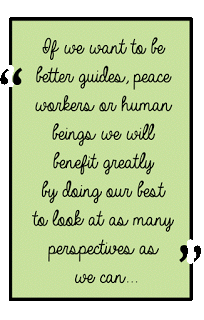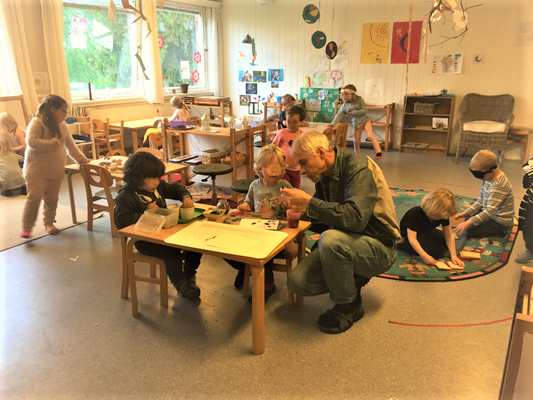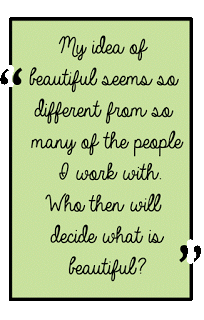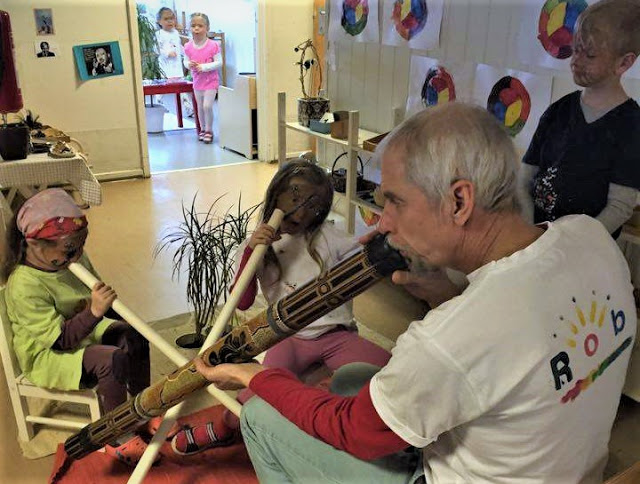I’m pretty sure most Montessori teachers, especially in preschools, have gotten down on their knees to get a child’s eye view of things. Our job is to make work available and inviting. Beautiful even. I, however, have wondered who the judge of what “beautiful and inviting” is. My idea of beautiful seems so different from so many of the people I work with. Who then will decide what is beautiful?
We are taught so many things in Montessori about how thing “should” look, and rightly so I suppose. We want beauty, but not flashy. Quality and not quantity. The right pictures on the walls at the right height. But let me ask this…. do we usually ask our coworkers opinions about how things look or do we ask a child? I don’t pretend to know what is the right (or wrong) thing to do. It’s merely a question for reflection.
 To best understand the child’s perspective, it is perhaps best that we understand how our own perception is developed. What influenced you to believe what you believe? Have you ever considered it? Was it your culture, your gender, the times you grew up (in which decade)? So many factors influence how we perceive things that I guess we can’t know them all. When we take a closer look at ourselves, we begin to grasp that there is no one correct way to see things. Nor is there in fact any way that is completely incorrect either. This is very useful to remember when we communicate with parents as well. I know many of us do this already. We can call it empathy. Similar concepts yet different. Perspectives also apply when observing nonliving things.
To best understand the child’s perspective, it is perhaps best that we understand how our own perception is developed. What influenced you to believe what you believe? Have you ever considered it? Was it your culture, your gender, the times you grew up (in which decade)? So many factors influence how we perceive things that I guess we can’t know them all. When we take a closer look at ourselves, we begin to grasp that there is no one correct way to see things. Nor is there in fact any way that is completely incorrect either. This is very useful to remember when we communicate with parents as well. I know many of us do this already. We can call it empathy. Similar concepts yet different. Perspectives also apply when observing nonliving things. Everyone has his or her own unique perspective and no one perspective is totally correct or incorrect. If we grasp this, we will be open to other’s perspective and increase our own understanding of what we wish to learn about or act upon. If we want to be better guides, peace workers or human beings we will benefit greatly by doing our best to look at as many perspectives as we can, using what we can and letting be that which we can not, so that our actions rise from the greatest clarity we can obtain at the time. Peace.
 Robert Fischbeck is a Montessori practitioner from Norway. He is married and has 2 children. Rob has a diverse interest and has worked in wide variety of jobs, from a sewer worker to fish cleaner; from kitchens to preschools. He studied Montessori with Waterpark in Oslo and has been working at Bambini Montessoribarnehage in Hamar, Norway since 2004.
Robert Fischbeck is a Montessori practitioner from Norway. He is married and has 2 children. Rob has a diverse interest and has worked in wide variety of jobs, from a sewer worker to fish cleaner; from kitchens to preschools. He studied Montessori with Waterpark in Oslo and has been working at Bambini Montessoribarnehage in Hamar, Norway since 2004.


